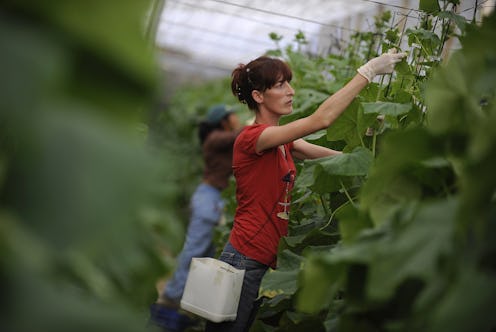News
Undocumented & Open To Sexual Assault
The agriculture industry in America largely relies on undocumented farm workers to function at the speed and price consumers have come to expect. These same workers who are the backbone of our nation, however, often don't receive the workplace protections they need. Now, in the first part of a two-part series featured on NPR, farm workers are opening up about a problem that often renders itself invisible: sexual assault.
"Conditions that allow sexual assault to occur all revolve around who has power," says Bill Tamayo, a regional attorney with the Equal Employment Opportunity Commission. "And if you're a sexual predator, that's the ideal position to be in because you can determine whether her family eats or not," he says.
The EEOC is a federal agency that protects workers from discrimination on the basis of gender and has won tens of millions of dollars in damages for victims over the past 15 years. Since the nature of being an undocumented individual in the United States involves the need to be hidden from the government, assaulted farm workers are often less inclined to come forward.
Maricruz Ladino shared her story with NPR about being sexually harassed by her farm supervisor back in 2006. Ladino said she constantly put off advances from her boss, until one day, he raped her on the way back from the fields.
"I couldn't say anything. I couldn't even scream because it's very traumatic. You don't know how to react," Ladino said. "I saw my choices: I lose my job, I can't feed my family."
After seven months, Ladino decided to file a formal complaint, and was fired as a result. She then filed a civil suit against the farm, after receiving help from a legal aid group. The company settled in 2010, though the supervisor denied the event ever happened.
NPR reports anecdotal instances of how the farm industry is attempting to make positive changes. For example, supervisors on California farms with more than 50 employees have to undergo sexual harassment training. In theory, these modifications are a good thing, yet the training is only for two hours every two years.
Individual solutions might be effective on a temporary basis, but there needs to be a stronger push to address the issue of sexual harassment targeting undocumented workers on a larger scale.
